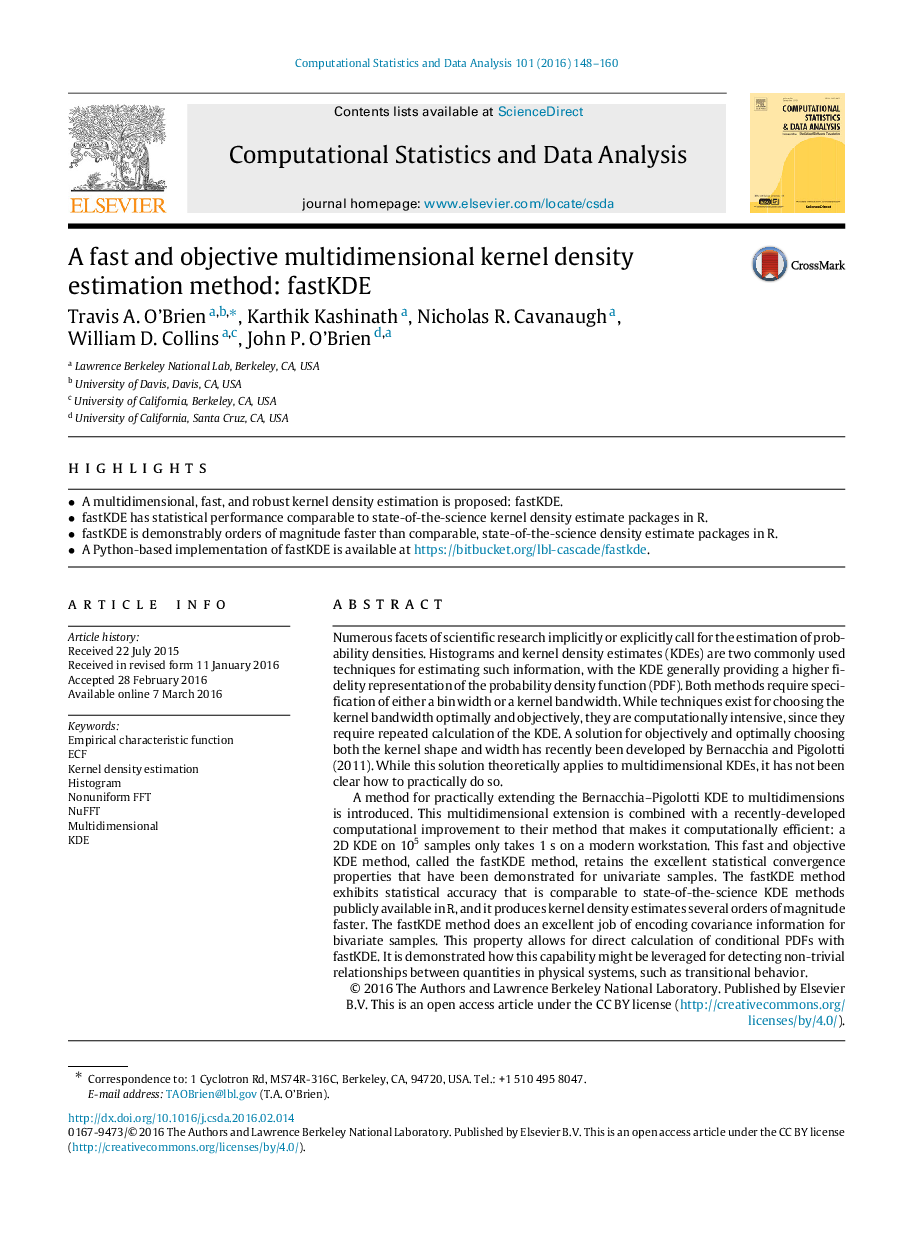| Article ID | Journal | Published Year | Pages | File Type |
|---|---|---|---|---|
| 6869025 | Computational Statistics & Data Analysis | 2016 | 13 Pages |
Abstract
A method for practically extending the Bernacchia-Pigolotti KDE to multidimensions is introduced. This multidimensional extension is combined with a recently-developed computational improvement to their method that makes it computationally efficient: a 2D KDE on 105 samples only takes 1Â s on a modern workstation. This fast and objective KDE method, called the fastKDE method, retains the excellent statistical convergence properties that have been demonstrated for univariate samples. The fastKDE method exhibits statistical accuracy that is comparable to state-of-the-science KDE methods publicly available in R, and it produces kernel density estimates several orders of magnitude faster. The fastKDE method does an excellent job of encoding covariance information for bivariate samples. This property allows for direct calculation of conditional PDFs with fastKDE. It is demonstrated how this capability might be leveraged for detecting non-trivial relationships between quantities in physical systems, such as transitional behavior.
Keywords
Related Topics
Physical Sciences and Engineering
Computer Science
Computational Theory and Mathematics
Authors
Travis A. O'Brien, Karthik Kashinath, Nicholas R. Cavanaugh, William D. Collins, John P. O'Brien,
